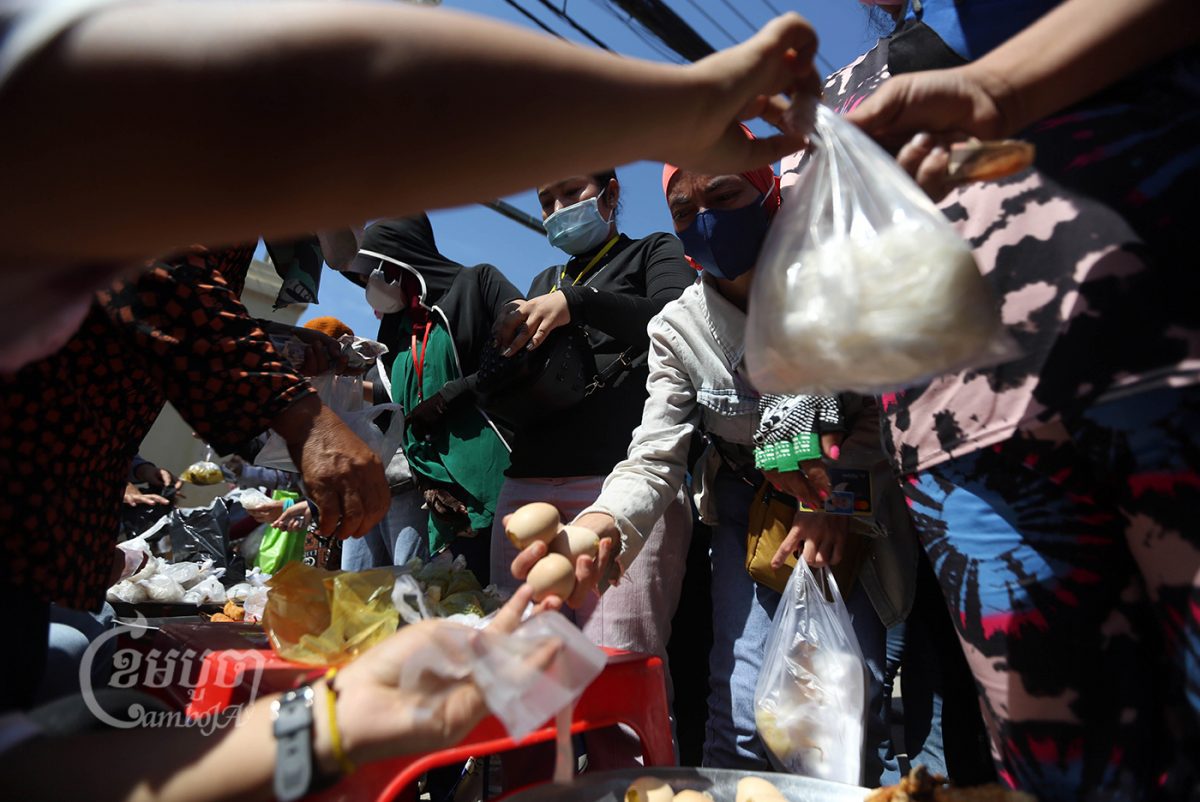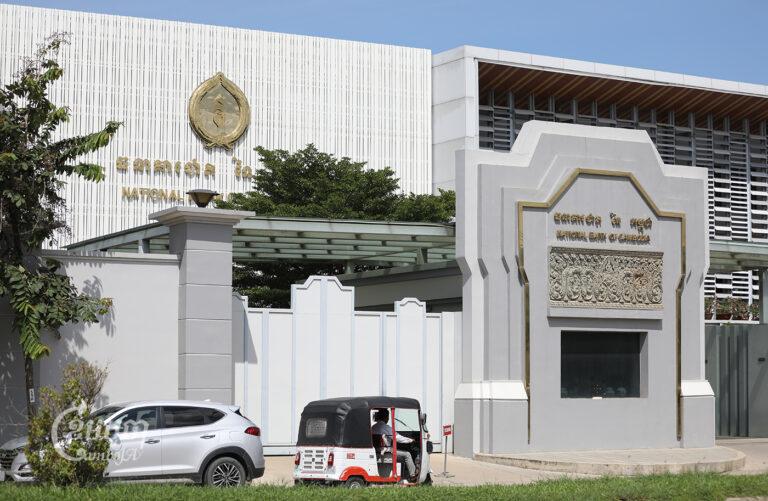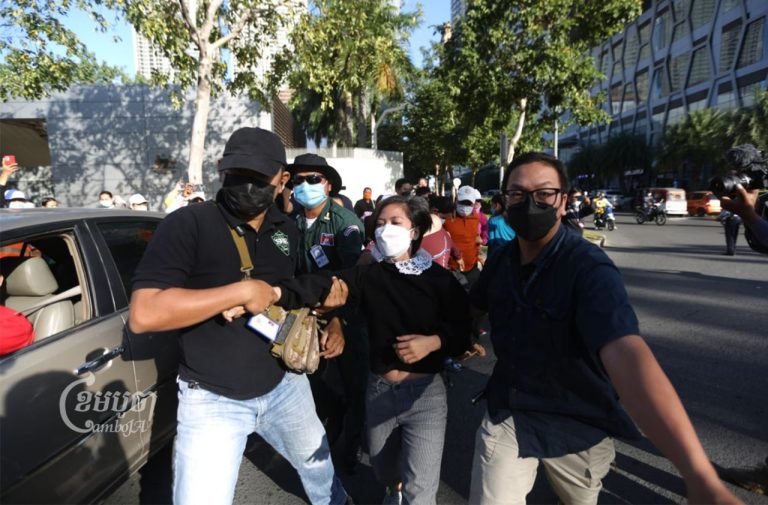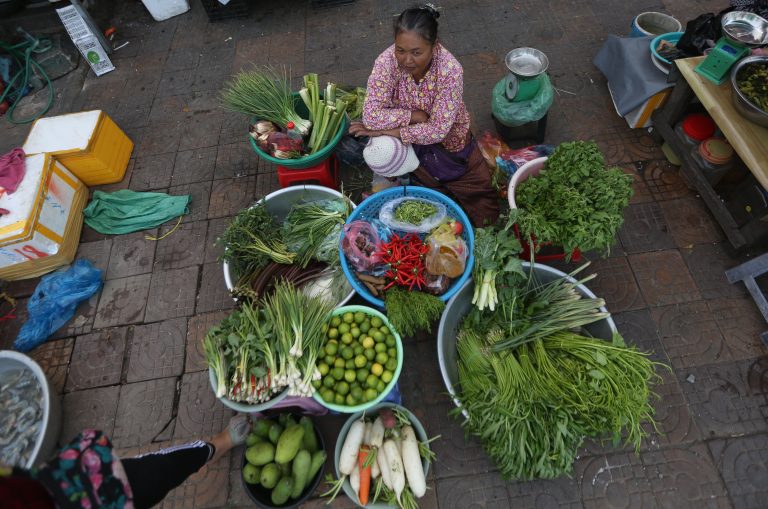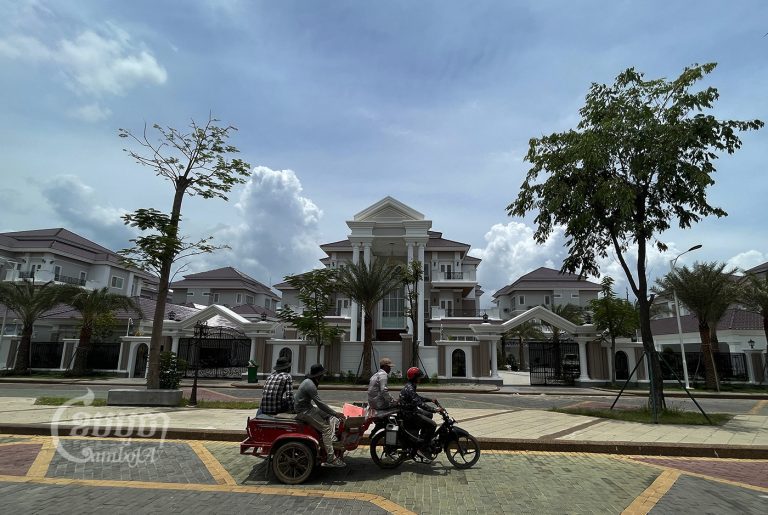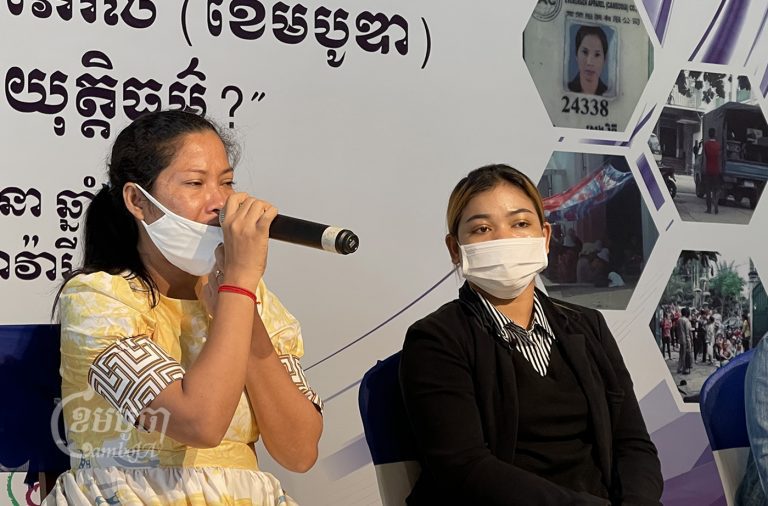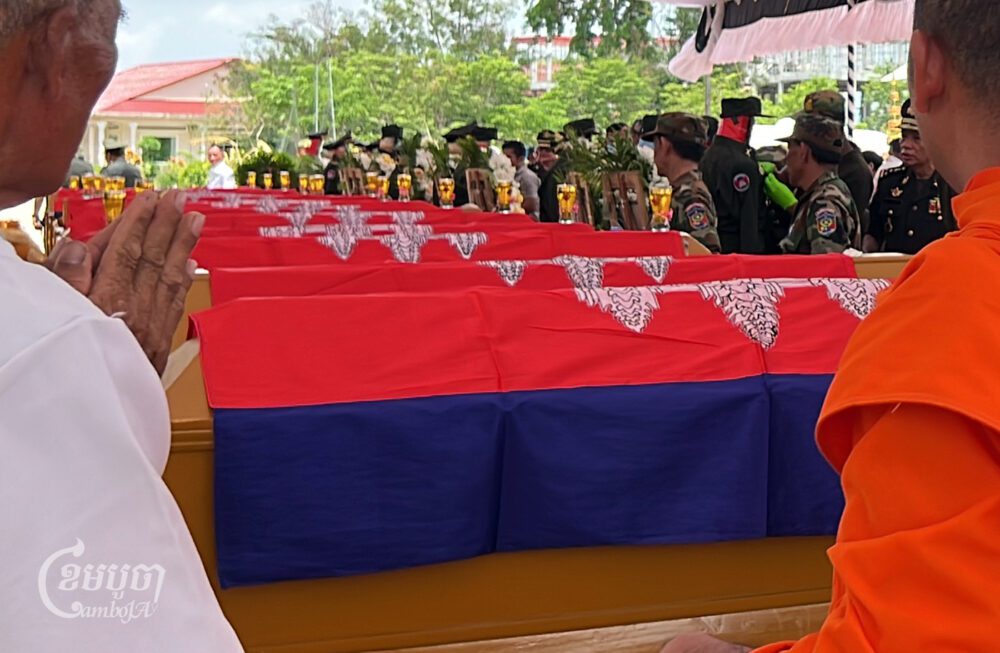Roeung Chanthy, a 41-year-old worker at the Yida garment factory in Kandal province’s Kien Svay district, is struggling to repay a debt of more than $10,000 after her husband passed away four months ago.
She said the government should intervene with banks and microfinance institutions to provide some exemptions to ease the hardship of garment workers.
“Before, I earned, together with my husband, around $500 a month. But since he passed away, I am struggling to repay our debt alone,” she said. “I now have to handle the whole family. I sold a motorbike to pay the interest on a microfinance loan last year and borrowed some money from relatives,” she said.
Chanthy has been granted leeway to pay only interest for one year on the loan, which is part of the government’s measures to ease Cambodians’ financial burdens during the pandemic – due to expire in March 2022. Chanthy is supposed to pay $200 monthly in interest, but for some months, she was unable to pay even that.
She said that if the factory fails to provide more work, she will have to sell her property to repay her loan. “It is very hard, I don’t know what to do next. I may have to sell my land,” she said. “The bank has allowed us to pay only interest, but when we pay late, they charge extra interest… how can we pay?”
Since the outbreak of COVID-19, during some months Chanthy earned less than even the minimum wage due to reduced working hours at the factory. With two children in her care, she earns between $150 and $180 a month compared to the pre-pandemic average of $300 per month.
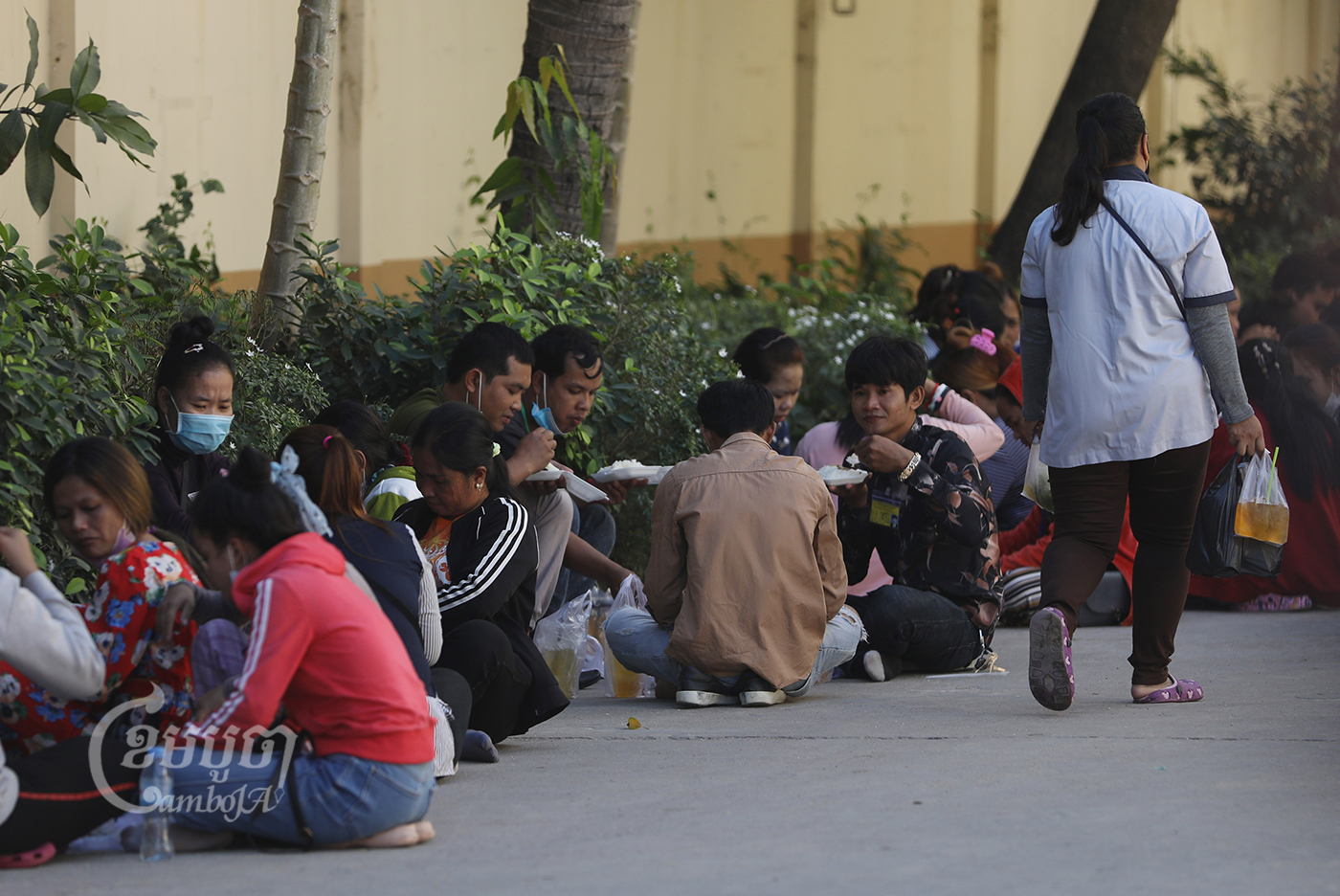
Dork Sovan, 39, who is another garment factory worker from Yida, shares the same difficulties. She said that her situation remains fraught as concern over the Omicron variant may lead to yet another lockdown, and a further loss in revenue.
She said that during the first half of 2021, the factory had suspended about 20 percent of its workers. She also said that some groups of workers were given extra hours while other groups were not. She has been one of the luckier ones: for the past six months she was afforded more work and could work an extra two hours a day.
Still, her reduced earnings worry her, especially as she had borrowed $16,000 to build a new house in Kandal province. Before the pandemic, she earned $300 a month, but now earns only $200.
“During COVID-19, the price of goods is going up, but the workers earn much less as we are facing microfinance debt,” she said. “I have not enough money to repay my debt and the bank comes to ask every day.”
Like Chanthy, Sovan also sold a motorbike to pay off her loan and said that if Omicron spreads, leading to another lockdown, she will have no choice but to sell her land.
Vann Bora, a garment worker in Phnom Penh’s Choam Chao commune, said the factory owner who employs him told workers in December that from February, work will be reduced and there will be no extra work hours.
“However, they don’t tell the reason and we also don’t know if the factory would suspend workers,” he said – adding that currently, his factory offers adequate work.
Kaing Tongngy, a spokesperson for the industry group Cambodia Microfinance Association, said that the implementation of the easing measures for customers, as well as the loan restructure policy, had ended in 2021.
“Most customers prefer the only-interest payment option and in case they are unable to pay the interest, the creditor cannot charge extra interest—which contrasts with the policy, so we will not tolerate it if found,” he said.
According to a 2021 joint report published by rights groups Licadho and Equitable Cambodia, Cambodians hold more than $11.8 billion in microloans from both microfinance institutions and banks.
In September last year, the government increased the 2022 minimum wage for workers in the garment and footwear industry by $2, bringing their monthly salary to $194 in a decision that left unions and laborers campaigning for more. The new minimum wage will come into effect on January 1, 2022.
This, however, has been insufficient to soften the impact of the pandemic, and the garment sector is also affected by the dialing back of favorable trade conditions, such as the expiration of Cambodia’s access to the US’s Generalized System of Preferences and the withdrawal of preferential access for approximately 20% of Cambodia’s exports to the EU market under the Everything but Arms agreement.
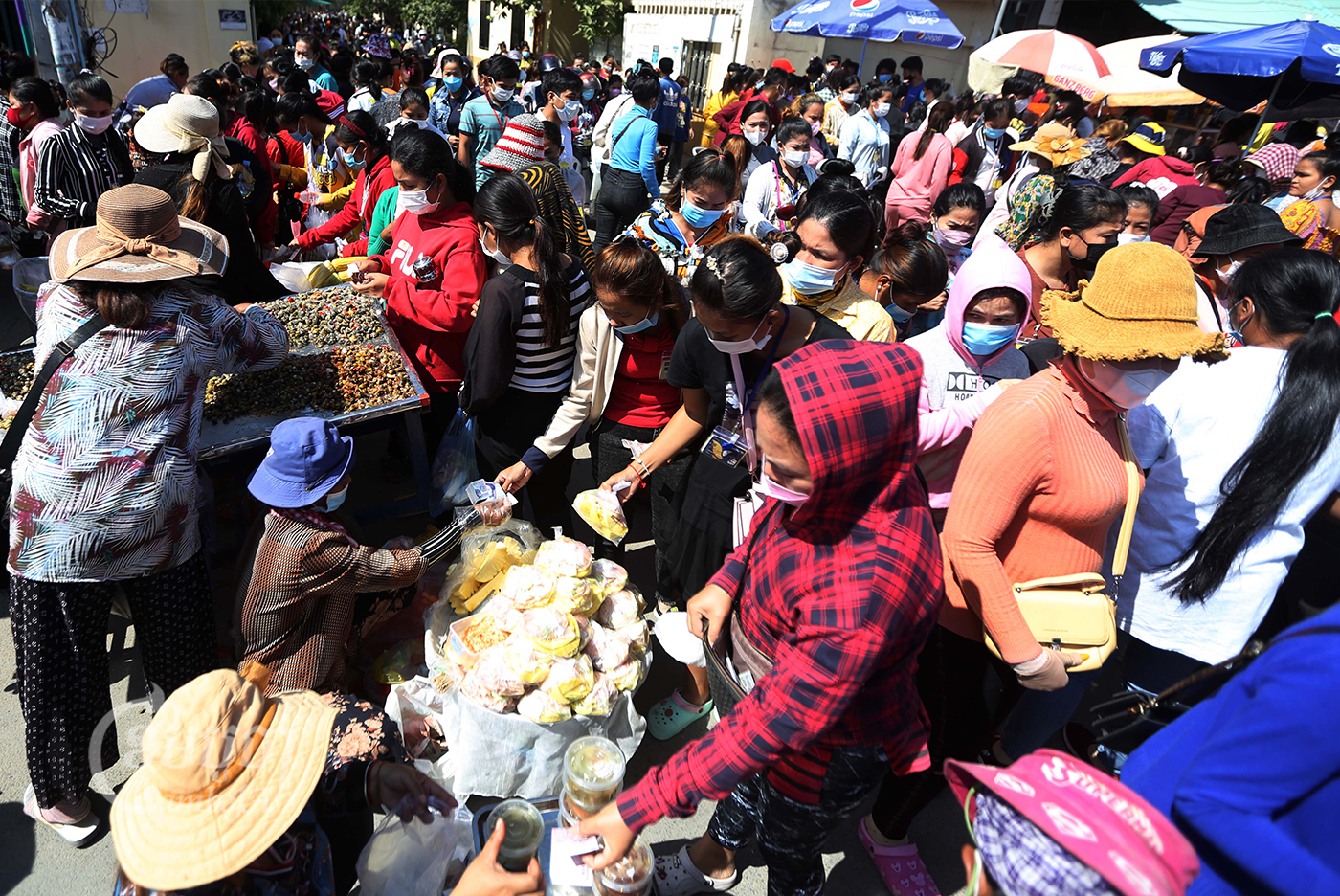
Kaing Monika, deputy secretary of Garment Manufacturers Association of Cambodia (GMAC), said different factories have different conditions and would have been impacted differently, but the majority of them looked to be coping.
“So far, it’s okay. Most of the factories have sufficient orders,” he said. “Last year, export was positive – moderate growth for garments, good growth for footwear, and amazing growth for travel goods.”
However, he said that what’s important now is to ensure stable production through effective control of the pandemic.
According to a Ministry of Commerce report, Cambodia exported more than $9 billion from garments, footwear, and travel goods in 2020.
Anthony Galliano, group CEO of financial services company Cambodian Investment Management Holding, said Omicron is disrupting the anticipated resurgence of the global economy in 2022.
“This, consequently, is likely to depress demand for Cambodia’s exports to the United States, and with lower demand, the garment sector will be adversely impacted,” he said.
Yang Sophorn, president of the Cambodian Alliance of Trade Unions (CATU), told CamboJA that the sector is faring better than it did in mid-2021 as some factories now have more work and workers can work overtime.
However, she cautioned, “The whole sector has yet to return to normal, and orders remain uncertain because some factories have no work for workers while some factories take COVID-19 as an excuse to close operations without proper compensation.”
It’s the workers who remain the most vulnerable in all this. While they managed to earn enough to cover their family expenses and repay their microfinance loans before the pandemic, they have since struggled to cover their debts with their reduced earnings.
Sophorn also said that in 2021, thousands of workers were suspended and laid off due to the closures of factories.


